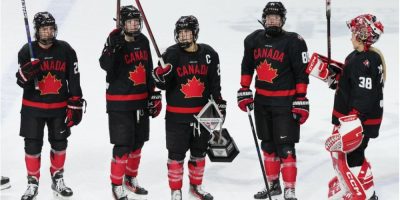
Amid a rise in infections such as measles and whooping cough in Canada and around the world, doctors say now is the perfect time for parents to ensure their kids and teens are protected against vaccine-preventable diseases.
"It is absolutely the time of year when families start thinking about their back-to-school checklists like school supplies ... healthy lunches, et cetera," Dr. Theresa Tam, Canada's chief public health officer, said in an interview.
"Making sure your kids are up to date with the routine vaccination is part of that checklist," she said, noting that kids will once again be mingling in classrooms and illnesses can spread.
On Thursday, the New Brunswick department of health declared an outbreak of whooping cough, with 141 cases reported so far this year. The province "strongly encouraged" parents to check the status of their children’s immunizations as the new school year approaches.
Whooping cough, also called pertussis, can be very serious and even life-threatening, especially for very young children, Tam said.
It can also significantly affect otherwise healthy kids, teens and adults, she said.
"We call it the 100-day cough," Tam said. "It can lead to (a) significant amount of coughing for a very long time."
Dr. Laura Sauvé, president-elect of the Canadian Paediatric Society, said some children still may not be caught up on routine vaccinations they missed due to COVID-19 disruptions.
In addition, the pandemic drove an increase in vaccine hesitancy fuelled by misinformation circulating on social media, she said.
"Some families have more questions about vaccines than they did before," said Sauvé, who is also a pediatric infectious disease specialist at the University of British Columbia.
"I would recommend that people talk to their doctors or a trusted health-care provider because doctors and public health practitioners are really happy to answer people's questions one-on-one."
Tam emphasized that if vaccinations have been missed, it's never too late to get them and that public health units and schools often run catch-up programs.
Here's a guide to help parents make sure their kids and teens are up to date on their vaccinations, based on provincial and territorial immunization schedules.
INFANTS AND TODDLERS
Before kids go to school, they should already have been vaccinated against tetanus, diphtheria, whooping cough, polio, haemophilus influenzae type B, hepatitis B, measles, mumps, rubella, chickenpox, meningitis, pneumococcal infections and rotavirus.
Babies receive multiple doses of the tetanus, diphtheria, pertussis (whooping cough), polio and haemophilus influenzae type B vaccine starting at two months of age through to 18 months. (Haemophilus influenzae type B is a bacterium that can cause infection in young children.)
In many provinces and territories, that vaccine also contains protection against hepatitis B.
But In New Brunswick, Northwest Territories and Nunavut, babies get a separate hepatitis B vaccination when they’re born, then two more doses over the next several months.
Babies also get a measles, mumps, rubella and varicella (chickenpox) vaccine – MMR-V -- at 12 months and 18 months in most provinces and territories.
In British Columbia and in Yukon, babies get the measles, mumps and rubella (MMR) vaccine and a separate varicella vaccine at 12 months. In Ontario, babies get the MMR vaccine at 12 months and the varicella vaccine at 15 months.
Babies also get a meningococcal vaccine, which protects against a strain of meningitis, usually at 12 months. In Quebec, that vaccination is given at 18 months. In B.C., Yukon and the Northwest Territories, infants receive their first dose of meningococcal vaccine at two months, then again at 12 months. In Alberta they get their first dose at four months, then again at 12 months.
Pneumococcal vaccinations are given at two, four and 12 months in all provinces and in Yukon. In N.W.T. they are given at two, four, six and 18 months. In Nunavut the pneumococcal shots are at two, four, six and 15 months, with another dose at two to three years of age.
Babies get the rotavirus vaccine at two and four months in all provinces and territories. In Saskatchewan, New Brunswick, Nova Scotia, P.E.I. and the three territories, there’s an additional dose at six months.
Barrie's News Delivered To Your Inbox
By submitting this form, you are consenting to receive marketing emails from: Central Ontario Broadcasting, 431 Huronia Rd, Barrie, Ontario, CA, https://www.cobroadcasting.com. You can revoke your consent to receive emails at any time by using the SafeUnsubscribe® link, found at the bottom of every email. Emails are serviced by Constant Contact
PRESCHOOL, KINDERGARTEN AND GRADE 1
Kids get another dose of tetanus, diphtheria, pertussis and polio vaccine between four and six years of age.
In B.C., Manitoba, Ontario and Yukon, kids in the four-to six-year age group get another dose of measles, mumps, rubella and varicella vaccine.
GRADE 4 THROUGH SECONDARY SCHOOL
In Newfoundland and Labrador, kids get another meningococcal vaccine dose in Grade 4.
In Saskatchewan and Manitoba, kids get that shot in Grade 6. In Ontario and Nova Scotia, it's in Grade 7. In B.C., Alberta, New Brunswick, P.E.I., Yukon and Nunavut, students get it in grade 9.
In Quebec, the meningococcal vaccine is given in the third year of secondary school. In N.W.T., kids get it in Grade 12.
School-aged kids in some provinces are also due for another hepatitis B vaccination.
In Saskatchewan, Manitoba, and Newfoundland and Labrador, that happens in Grade 6. In Ontario and Nova Scotia, kids get it in Grade 7. In other provinces and territories, the hepatitis B vaccination should already have been provided in infancy. Kids in Alberta may get the hepatitis B vaccination in Grade 6 as part of a vaccine catch-up program.
Kids and teens also need a tetanus, diphtheria and pertussis booster. In Nunavut, they get it in Grade 6. In New Brunswick, Nova Scotia and N.W.T., kids get this booster in Grade 7. In Saskatchewan, they get it in Grade 8 while Manitoba kids get it in either Grade 8 or 9.
In B.C., Alberta, P.E.I., N.L. and Yukon they get the shot in Grade 9. In Ontario, it's between 14 and 16 years of age. And in Quebec, teens get a tetanus and diphtheria booster in the third year of high school.
This is also the time to get vaccinated against human papillomavirus (HPV). The two-dose vaccine is offered to students in Grade 6 in most provinces and territories. In Ontario, New Brunswick and Nova Scotia it's Grade 7. In Quebec, the first HPV dose is given in Grade 4 and the second is given in the third year of secondary school. In N.W.T. it's two doses given to kids between nine and 14 years of age. The territory offers three doses of HPV vaccine for teens getting their first shot at age 15 or older.
In July, the National Advisory Committee on Immunization said that one dose of HPV vaccine could be enough for children and youth between nine and 20 years old, but it's up to the provinces and territories to decide if they will shift to one dose or maintain the current two-dose schedule.
COLLEGE AND UNIVERSITY
Before heading off to college or university and living in residence, students should get their immunization record from their parents if they have it and make sure they're up to date, Tam said.
And don't forget a tetanus booster is needed every 10 years, doctors say.
SEASONAL VACCINATIONS
Back to school means heading into fall, which is the start of respiratory virus season, Sauvé and Tam said. Getting the flu shot for anyone six months of age and older and considering an updated COVID-19 vaccination is recommended.
There's currently no vaccine against respiratory syncytial virus, or RSV, in Canada for school-age children.
This report by The Canadian Press was first published Aug. 24, 2024.
Canadian Press health coverage receives support through a partnership with the Canadian Medical Association. CP is solely responsible for this content.





